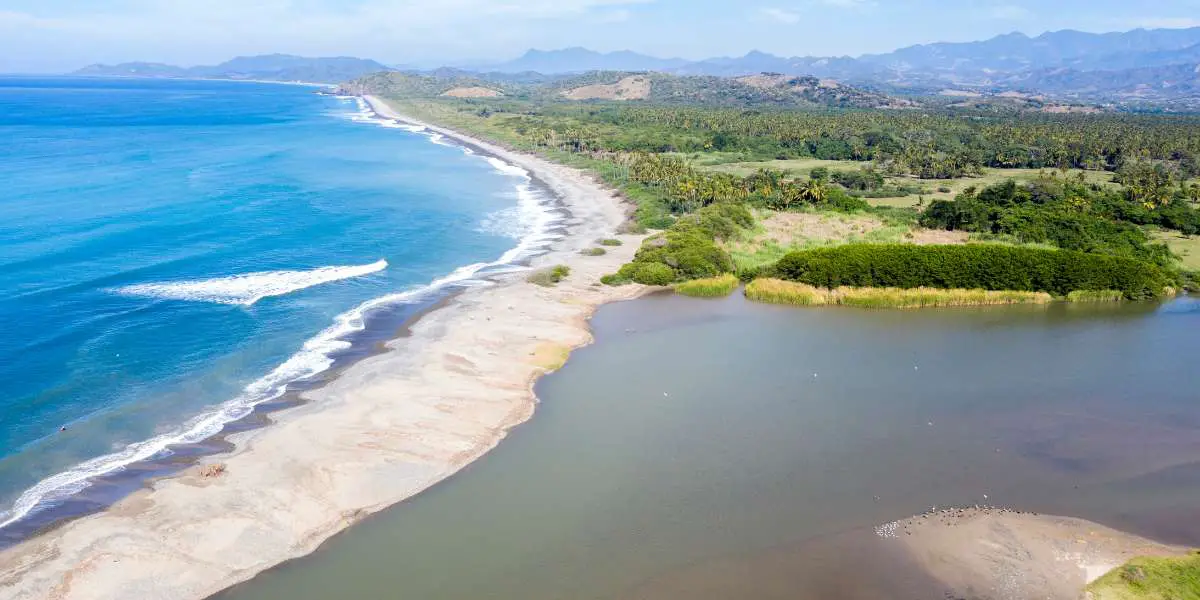Retirement is something that I think most of us are looking forward to, especially those of us in the West who generally lead a fairly busy work life.
Most of us work hard, but at the end of all that hard work we hope for something of a reward for all our efforts. At the moment, you may be working 60 or 70 hour weeks, or perhaps you have already retired but are finding the rising living costs in the West to be eating into your pension and any other investments?
If you were to retire to Thailand, you could live a very nice life on about $1500 to $2000 a month, even on $1000 per month you could live a nice life but you’d need to be a little more careful with your spending habits.
Rather than struggle to maintain your current lifestyle with possibly reduced funding after retirement, you could look into moving to Thailand and possibly buying an apartment / condo, or perhaps leasing land and building a house. I will explain a bit more about these later.
There is little point in me trying to list exact prices for property here as it changes (within reason). However, I’ll try to give you some rough estimates on prices, you’ll need to check at time of reading this for current prices.
Retirement Visa For Thailand
This is something that you’ll need to secure before you can really do much else, and the criteria that you need to meet can change from time to time.
In recent times the Thai Government changed the criteria that you need to meet to be eligible for a long term retirement visa, this was due to a sizeable number of foreigners arriving in Thailand without sufficient funding to keep their heads above water.
Those people would often times end up homeless or in other dire straits, needless to say the Thai authorities don’t want a situation like that so they’ve added some stipulations on how you can be approved for a long term retirement visa for Thailand.
As a rule, if possible, I’d start putting away some money each month towards having a lump sum. If you can, try to plan a few years in advance (this won’t be possible for everyone). If you can put some money aside each month over a period of years then it will greatly aid your application for a retirement visa in Thailand.
Funding for O-A Thailand Retirement Visa
This is a topic that there is some confusion over, and the confusion has only been added to with the advent of the Covid-19 pandemic.
The monetary requirements to get approval for the O-A 1 year retirement visa are as follows:
The equivalent of 800,000 Baht (about $25,500) in your own bank account (in your own country) which acts as a security deposit.
The equivalent of 65,000 Baht (about $2,075) monthly income.
A combination of the security deposit and total annual income that will tally up to 800,000 Baht.
You will also need health insurance in your own country that will cover up to 40,000 Baht ($1,275) outpatient treatment and up to 400,000 ($12,750) inpatient treatment.
The Covid-19 situation has also muddied the waters somewhat, with cover being required on your insurance for this, but it’s possible that when you are reading this article, the Covid-19 virus may well be a distant memory.
As you can see, the requirements for the funding here are not really clear, and there appear to be conflicting reports about how much money for the security deposit must remain in the bank. Anecdotally, I’ve heard of expats being told different instructions from different immigration officers.
I’d strongly recommend that you get exact details, especially on the combined payment option, from the Thai embassy in your country and if possible get it in written form.
Health Insurance
One of the first things I recommend that you get is health insurance, I can’t stress enough the importance of this.
Even though medical treatment in Thailand isn’t as expensive as some other places, if you should fall ill and are operating on a limited budget then that wouldn’t be a good situation.
There are several companies available to provide health insurance services, one of the better options available is Pacific Cross Health
Prices will vary but if you contact Pacific Cross they will be able to provide you with a quote. It’s worth noting that the maximum age for new applicants is 75 years old.
Where To Retire In Thailand
As an expat, there are many nice cities in Thailand that you may decide to settle in during your retirement in Thailand, there are also many rural areas and villages where you might go.
There’s no right or wrong answer here as it really comes down to personal preference, your own situation and what type of lifestyle you want to live.
Perhaps you’re planning on visiting bars regularly and looking for the local girls (or ladyboys, depending on your preference), but this can very quickly become an expensive hobby.
Chiang Mai
Located in the north of Thailand, Chiang Mai is a very popular location with people who decide to become Digital Nomads (you can read more about How To Be A Digital Nomad In Thailand here).
Although here, you may be a fair distance from a beach, there are plenty of things that are attractive about Chiang Mai. Due to the high amount of Westerners here, you may find this as bonus? Finding Western foods in Thailand is generally easy enough, but in Chiang Mai the process is much easier.
We will expand further on Chiang Mai in a future post that will be linked here.
Pattaya
Pattaya is known as being a wonderful place to visit if you are looking to party and have fun. Of course, partying like anything else can get a bit boring after a while.
Luckily, Pattaya is much more than just a party town, it’s a wonderful coastal city with some excellent opportunities for property, be it renting or buying.
Deciding to settle in Pattaya may depend on what type of retirement you are aiming for, Pattaya does have a lot of bars, and also the notorious Walking Street (What To Do In Walking Street), but this doesn’t mean that you need to partake in that scene if it’s not your thing.
There are a large number of expats who live in Pattaya who would maybe occasionally visit a girly bar, and of course, there are some who visit every night, but if you’re operating on a limited budget, then I’d recommend that you be careful about limiting your visits to any girly bars as you can be sure this will demolish your funds!
Traveling around in Pattaya is straightforward enough as it’s not a massive place. However, as property prices will be higher the closer you get to the beach, you may choose to rent / buy a property on the east side of Pattaya.
There’s a very useful transport system in Pattaya known as the Baht Bus,
Bangkok
Bangkok, being the capital city, means that prices will be a little higher here. However a benefit that you’ll find being based in Bangkok is that the level of infrastructure is noticeably improved in comparison to other cities.
Bangkok boasts an excellent elevated train system known as the BTS or Skytrain system, this is cheap to use and will allow you to travel across this huge city quite quickly.
There is also a metro / subway system that covers a good portion of the city and will allow you to get around quite quickly.
Traffic is pretty heavy in Bangkok, and traffic jams appear to be the norm. Using the GRAB taxi app (very similar to Uber), you can travel around for a relatively decent price, but if you are using this constantly then it will drain the funds.
In regards to property, if you choose a location close to one of the BTS Skytrain stations then you can expect to pay a premium.
Retirement Property In Thailand
Across much of Asia, there are restrictions in place which prevent non-nationals from owning land or houses.
It’s possible for you, as a foreigner, to long term lease land, once you have the land lease in place then you can build a house on the land, but I’d strongly recommend you doing quite a bit of research on the topic before moving down this path.
You should also get in contact with a locally based solicitor or lawyer and have them examine any documentation relating to leasing land which you intend to build property on. There are caveats which can be enacted that will force the land owner to sell any property that you’ve built while the lease was in effect and pass the sale funding to you.
The legal team can also go over the paper work before any money changes hands and double check that everything is in order with respect to local laws.
If you are serious about leasing land long term and building a property on it then it’s well worth your while to spend a thousand dollars or so on this at the beginning to make sure nothing trips you up further down the line.
Another option available to you, and probably the better option in my opinion, is to look at either buying a condo / apartment (this is allowed under current Thai law) or else look at renting a house or condo.
You’ll find that the prices, compared to the West, are much more affordable, and that will be an important factor if you’re going to be working with a limited budget each month.
Buying A Condo
Buying a condo or apartment in Thailand is good option for many retiree expats, especially expats that are single. As a foreigner (or as Thais will call you, farang), you are not allowed to buy land or houses.
You are allowed to buy a condo or apartment though, however I recommend that you do your own research on this prior to buying anything.
Most apartment blocks in Thailand have the 51% Thai rule, meaning that 51% of the apartments in the building must be owned by Thai citizens or companies, allowing the remaining 49% to be owned by non-Thais.
Quite a lot of the apartment complexes in Thailand will feature a gym / fitness center and will often times have a least 1 swimming pool. Some of the more upmarket offerings will also come with a sauna or steam room.
Price wise, this can vary quite a bit, you could spend anywhere from about $20,000 all the way up to several million Dollars, depending on where you decide to buy.
There is an ongoing debate among the expat community in Thailand about the merits of owning property vs renting. One of the arguments being that if you purchase a condo, the resale market isn’t great. There’s also the issue that there are always new apartment blocks being built in Thailand, so this reduces the odds of making a profit in resale due to a lack of scarcity of available properties.
The choice is yours, but it’s definitely worth doing some detailed investigation before committing to purchasing an apartment or condo in Thailand.
Renting A House Or Condo
Renting a house or condo is likely the best option for you when you first move to Thailand. Prices tend to be a lot cheaper than those in the West and you’ll that depending on location, you can get some real bargains.
Although prices will vary, you can rent a nice house or condo ranging anywhere from 10,000 Baht (about $320) all the way up to 25,000 Baht (about $800) per month and beyond.
Of course, prices will vary depending on whereabouts you decide to rent. So for example, you would very likely pay higher rent for a place in Bangkok than you would for a similar property in Pattaya or Chiang Mai.
Everyone’s situation will be different, perhaps you’re a single guy who’ll be happy with renting a small (35m2) apartment or perhaps you are retired couple that would like to rent good sized house?
A good site to see what properties are available is Thailand-Property, it will allow you to search by price range, number of rooms, location, etc.
Believe it or not, a really good place to find available rental properties is on the Facebook Marketplace, and here you can often find some real bargains.
Something to note is that if you are planning on renting, you can often get a better price if you rent long term. So for example, if you rent on a rolling month to month basis the rent might be 10,000 Baht per month, but if you committed to a 6 month or even 12 month stay then the price may drop to 9000 or 8000 Baht per month.
One other thing that’s important to check before renting is to see what electricity and water rates the management company will charge. There are rates which are set by the Thai Government, however you will sometimes find that landlords may hike these unit prices up.
The difference in unit prices may not seem like a lot, but when you consider how warm it can get in Thailand, meaning you will likely have the air conditioning running and using the shower maybe 3 times a day, the costs can add up, especially if you are operating on a limited budget.
Conclusion
Well hopefully this article has given you some insights into the various costs involved in how much it costs to retire in Thailand. There is no real 1 size fits all answer, everyone’s situation will be a little different.
I think it’s reasonable to say that you could survive on $1000 a month, but it probably wouldn’t be a very exciting life, if you’re planning on visiting bars regularly then $1000 per month likely wouldn’t be enough.
Realistically, you’d want to have a monthly income of around $1500 to be comfortable, more than that is a bonus and would allow you to live a more affluent lifestyle.




